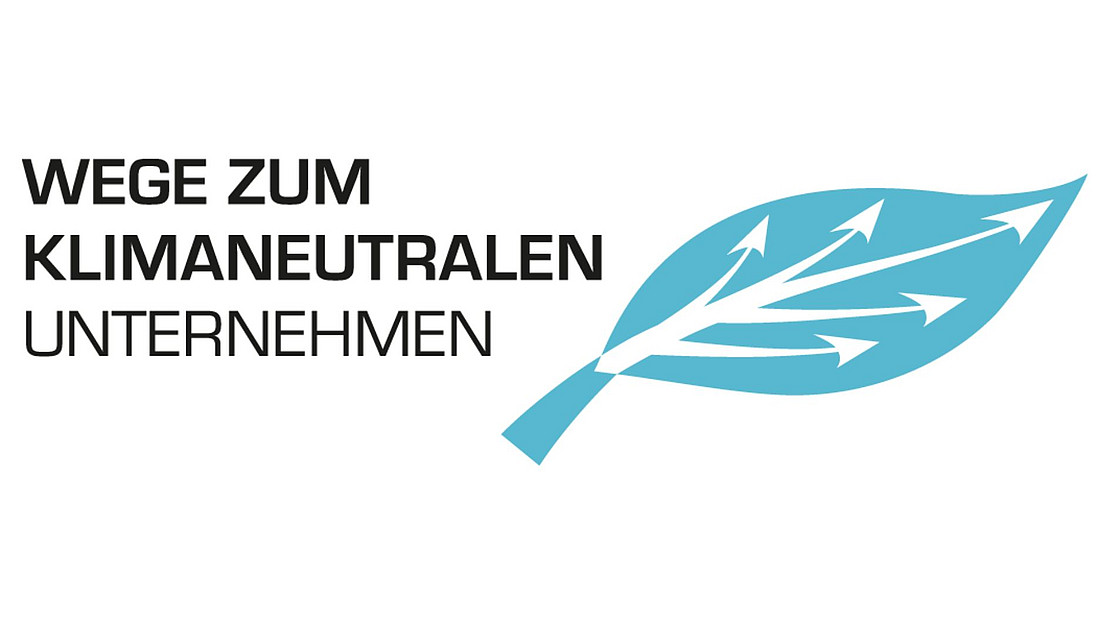This page contains automatically translated content.
Project of climate protection companies and university presents results
 Image: Klimaschutz-Unternehmen e.V.
Image: Klimaschutz-Unternehmen e.V.The ten project companies have set themselves ambitious targets: Almost all are aligned with the Science Based Targets, which are based on the 1.5°C target of the Paris Agreement. By the interim target in 2030, the Group aims to reduce its greenhouse gas emissions by 45 percent from 185,000 metric tons in 2019/2020 to 103,000 metric tons. As a first step, this means they are already saving as much as a car driving around the world more than 11,000 times or an airplane flying back and forth between Frankfurt and Mallorca 1,350 times. With their goals, they have taken a big first step and are well prepared to become climate neutral by 2045.
To prepare for their journey toward climate neutrality, the pilot companies advise other companies to plan around two years just for analyzing their current situation and developing target scenarios and a climate strategy. It is important that they see the transformation process as an opportunity, because a smallercarbon footprint reduces business risks. Thomas Hoyer, authorized signatory and head of staff at Energiedienst, recommends: "Companies should set climate neutrality as a corporate goal. Management must develop appropriate strategies and actively support the process. For companies, this means a change process. For this, they need extra resources and responsibilities, have to establish new topics, rethink business models, introduce and involve employees." The COO of Phoenix Contact, Torsten Janwlecke, adds: "From the experience of the companies that have worked intensively on the topic of climate neutrality for two years in the project, external support is useful in the transformation process. Scientific expertise in particular ensures acceptance within the company. Having measures that are often already known evaluated according to the state of the art in order to then calculate costs and plan implementation is very helpful in such a change process."
The starting point for the project was the various approaches to climate neutrality. "What does climate neutral actually mean and what should companies orient themselves to? There are laws and requirements from politics, but further on there is no standard. That's why we worked with the pilot companies to develop individual goals, strategies, plans and measures for practical implementation in their operations to meet the 1.5°C target or their own goals, but also to meet the planned climate neutrality standard," says Professor Jens Hesselbach, head of upp, explaining the project's approach.
Until a standard regulates the term climate neutrality, the group has developed its own definition: The project companies minimize their climate-damaging emissions and the environmental impact of their products. In doing so, they are making their contribution to Germany's climate neutrality in order to avert the greatest risks of climate change.
Asked about the obstacles that the ten climate protection companies involved see on their way to climate neutrality, 80 percent say that regulatory framework conditions are increasingly becoming a problem. Half of the pilot group also find financing and subsidies difficult. "Regulations are becoming increasingly complex, and authorities and approval procedures are a real stumbling block for companies that want to become climate neutral. Since there is no uniform definition or regulations, it is unclear what climate neutrality means for companies in the future, for example in terms of building permits," says Philipp Andree, managing director of Climate Protection Companies. "Financing is already difficult in these times. It is all the more difficult for companies that funding budgets are limited, processing times are long and costs are sometimes higher than the promised funding. It is also difficult that funding programs are becoming more and more complex and that proof of use is becoming more and more time-consuming. In addition, subsidies are only valid until development, but cannot be used for implementation," continues Andree, appealing to politicians to simplify subsidy programs and make the conditions transparent. As promised in the coalition agreement, approvals should be simplified and accelerated so that companies that want to transform receive more support in doing so.
Companies are getting support through the "Paths to a Climate-Neutral Company" project: In parallel to the first round of the project, a second round with ten companies has started in summer 2022. The climate protection company ZINQ is once again involved. At its suggestion, the second round of the project has a new focus on the circular economy.
These ten climate protection companies participated in project round 1 from the beginning of 2021 to the end of 2022:
- Energiedienst Holding AG
- Förster Kunststofftechnik GmbH
- Neumarkter Lammsbräu Gebr. Ehrnsperger KG
- PHOENIX CONTACT GmbH & Co. KG
- Provinzial Holding AG
- Schöck Bauteile GmbH
- Stadtwerke Karlsruhe GmbH
- Weidmüller Interface GmbH & Co. KG
- Worlée-Chemie GmbH
- ZINQ GmbH & Co.KG
Contact:
Dr. Ron-Hendrik Hechelmann
University of Kassel
Institute of Production Engineering and Logistics
Department of Environmentally Compatible Products and Processes (upp)
Phone: 0561 804 34 44
E-mail: hechelmann[at]upp-kassel[dot]de